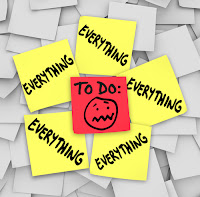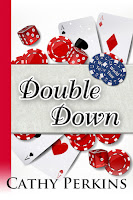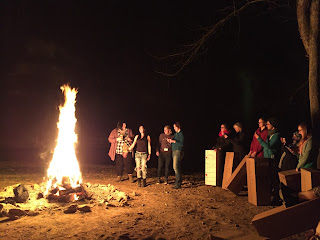Retreating…
What’s the appeal of a writing retreat? There are as many types of writing retreats
as there are writers. Some are world famous organized affairs, while most are events
planned with friends. Drop “writing retreat” into your internet browser and
pages of links will fill the screen.
back, though, let’s look at the big picture. What’s mentioned most often as the
key ingredient for a writing retreat?
A
retreat reduces our usual distractions for guilt free writing time. Away from
home, spouse, family, friends, pets, day-jobs, laundry, and stacks of unopened
mail, we can relish the time and the freshness of a new place. When we step
through the door of our temporary haven, there are no defining expectations, no
history. In this place we are Writer
rather than cook, chauffeur, pet walker, diaper changer, Scout leader, event planner, or any
of the myriad roles layered on by our usual routine.
course, this giddy freedom can also produce overly ambitious goals. I’ll work day and night and crank out a
hundred new pages, thousands of words!
time away from our jobs and lives, we might feel pressured to be uber productive. We feel guilty if we’re
not making every minute count. But that’s missing the other primary goal of a
writing retreat – a chance to rest, renew, and refill the creative well. The
goal is not to return home feeling you’ve just pulled a series of all-nighters.
individual balance point. I have friends whose ideal writing retreat is a hotel
room with in-room dining service and a view of the roof top air-handling equipment.
They are there to write. Period. End of sentence. Maybe they have a deadline to
meet or that’s their personality, but the separation from the world is purely functional.
mini-vacation. Write a couple of hours in the morning and afternoon and then indulge
the rest of the day with friends or, as The
Artist’s Way calls it, feeding the inner child. Visit galleries, spend time
with writing friends, walk on the beach or hike a mountain trail. Read in a clawfoot bathtub or bing-watch a complete season of Outlander. The writing
time flies by with flowing words and the writer goes home ready to tackle the
rest of the novel and the rest of her life.
I’m somewhere in the middle of these extremes.
words written, a story spine planned, or the minutia of an upcoming release
scheduled.
friends, to talk story with people who don’t roll their eyes (cough, cough,
family) and to walk for hours on the beach.
What does your favorite or ideal writing retreat look like?
An award-winning author of financial mysteries, Cathy Perkins writes twisting dark suspense and light amateur sleuth stories. When not writing, she battles with the beavers over the pond height or heads out on another travel adventure. She lives in Washington with her husband, children, several dogs and the resident deer herd. Her latest release is Double Down, available at major online retailers.
Amazon B&N Kobo iBooks





